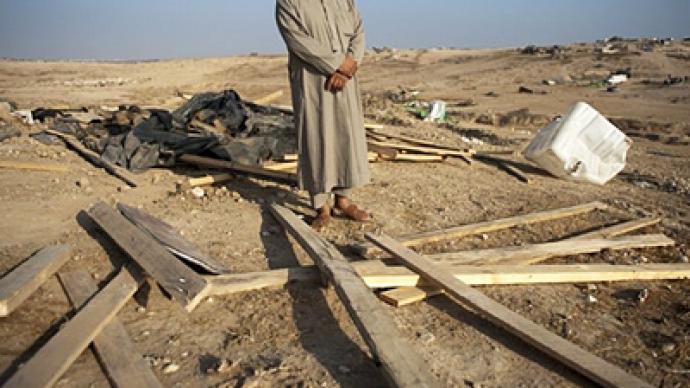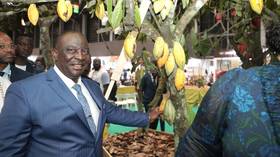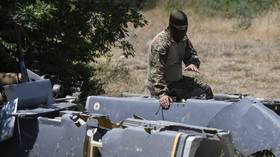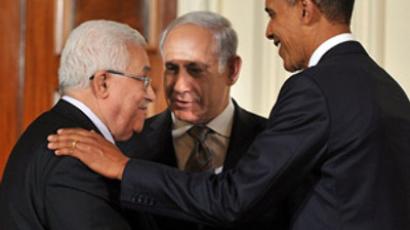Knocked down but not defeated: Arabs fight desert demolition

The Israeli government is uprooting nomadic Arab tribes from the desert they have lived in for over a century.
In what seems like the middle of nowhere are the remains of Al Araqib village. For the third time in two weeks Israeli police came with their bulldozers and in little more than an hour demolished 60 houses. “This is my land – I have a paper, I have a document – this is my land,” Juma el Tori, an Al Araqib resident says. “I ask this government how do I leave and how can I afford to buy this same land elsewhere in Israel – I can’t. They want me to sell my land – I won’t.”And as long as he – and hundreds of others – won’t, the police will continue to raid. They have been seven times so far, backed by a government whose official policy states – it is their land. “But I think the unofficial policy underneath is that the land should go to the Jews not to the Arabs,” says Anver Ben Amos, representative from the NGO Negev co-existence forum. The Bedouins are nomadic Arabs who have lived in the Negev desert for more than a hundred years. They claim they used to pay taxes during the Ottoman period and British mandate. But after Israel took over in 1948 they have been hard pressed to prove their ownership of the land. “They don’t have any legal documents proving that this land is theirs. They have agreements of buying and selling between themselves, but according to the law of the State of Israel, ownership of land can only be proven by registering the land at a public office,” says the head of land administration for the Negev, Shlomo Tzesar. Israel says it has built alternative cities for them with all the facilities they could hope for. But they keep returning to the desert. “They are not abiding by the law. They live inside graveyards with horses, donkeys and sheep. The animals mess all over the graves and it make it difficult for us to move them. But we have to because they need permission to build the land and they do not have it,” adds Tzesar.“I think that the government …would like to push them into ownerships where they become simple workers…as they would mainly like to give the land, to the army and Jewish settlements who will change the demographic status of the Negev,” says Anver Ben Amos. The vast uninhabited desert is home to only around 7% of Israel’s population. Several years ago the government launched an ambitious program to the value of US$600 million to try to persuade new Jewish immigrants and Israelis to live there. The aim over the next three years is to have more than a quarter of a million of them living in the desert.But as big as the desert is, it is seemingly not big enough for Jews and Arabs. In the last demolition, Juma El Tori lost his warehouse and seven houses, but he has not lost his resolve. “We are men of peace, we do not use the gun. The men who came to destroy our houses are the bad faces of this land. We did not fight back when they came,” says Juma El Tori.But the fight will continue, because when the sun comes up, Juma will build again. And in a few weeks, the Israelis will no doubt return.















